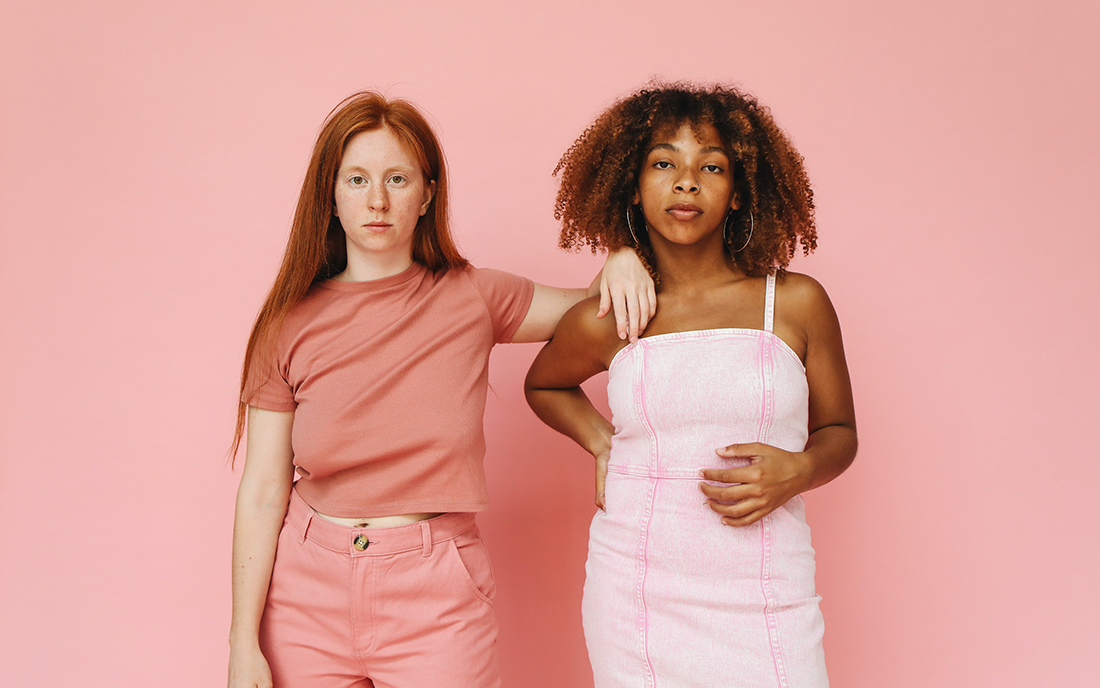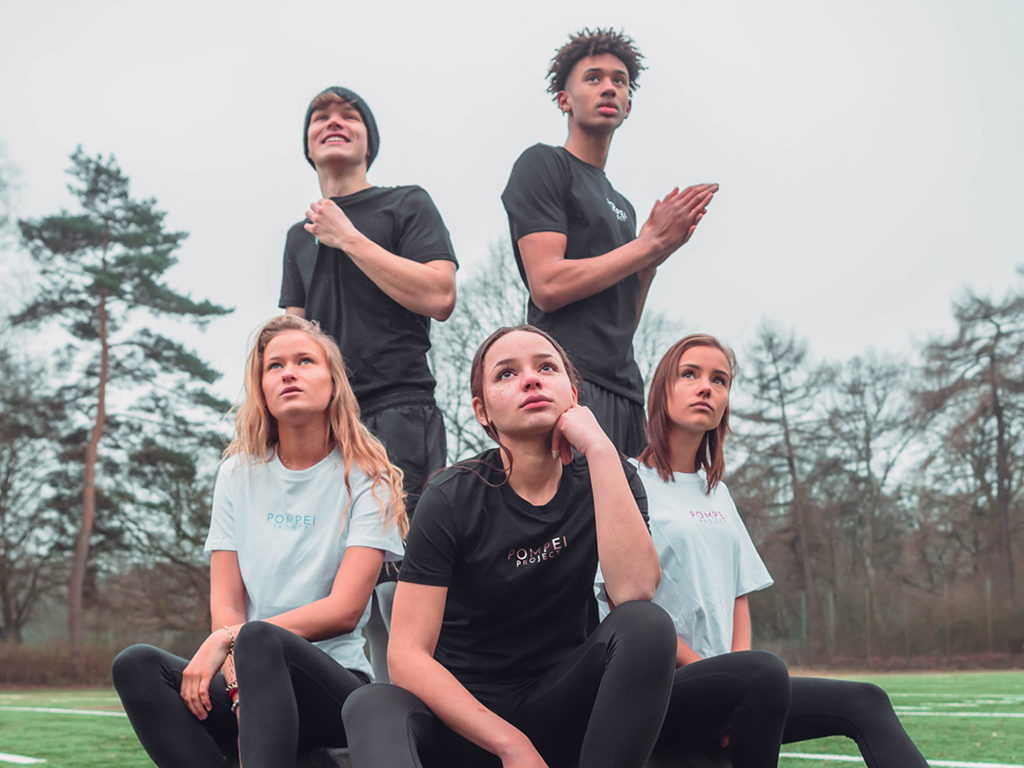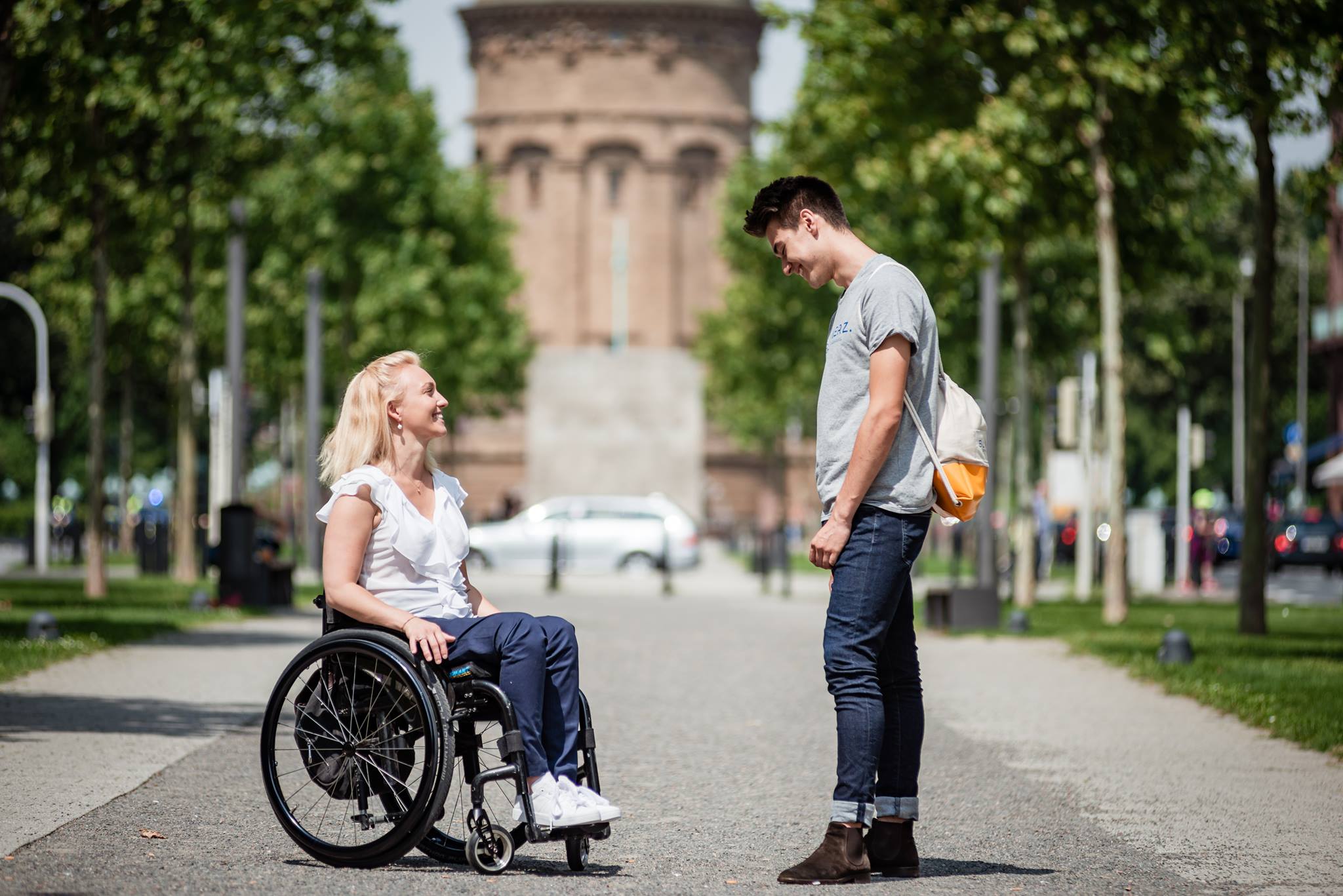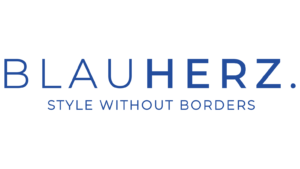These three young fashion labels are breaking new ground in terms of sustainability

Making fair fashion doesn’t just concern materials and production. These fashion labels found new, inspiring ways to support not only their customers but also their manufacturers – and really putting the fair in fashion!
These fashion labels make the textile sector fair and sustainable!
Today, we present three still largely unknown fashion labels with whom we had been in close contact: Pompei won the community award of our Impact Challenge in July. The labels eyd – humanitarian clothing and Blauherz are on our shortlist of initiatives that we would like to support in the future. Because they are taking radically new paths to make the textile sector fair and sustainable for all.

Every Pompei shirt is made from 10 recycled plastic bottles!

Pompei Project – the Gexsi Community Award
Pompei is a young, authentic fashion label from Germany. The company, founded by Justin and Julian from Hamburg, started this year as a simple GbR and is financed without external investors. With success: The first collection is almost sold out and the young business is already profitable, as Justin told us. While the first collection of shirts addressed mainly athletes, Pompei now started to target a wider group of people who share their passion for fair and sustainable textile. Pompei cooperates with the Indian company Waymore and produces its shirts partly from fabric made from recycled plastic bottles.
What we like about Pompei is that the company can trace the supply chain back to the fishermen who pull the plastic waste out of the sea on the south coast of India. This gives the an additional emotional value. The founders of Pompei want to make green and fair fashion mainstream. They seek to build a cool brand with simple sustainable textiles, which are sold at prices which people can afford. Due to their lean company structure Pompei targets to be competitive in the market while making a significant contribution to livelihood improvement and greening the economy in the producing countries.
We asked ourself how the name Pompei came about. Justin explained it as follows: The world today reminds him to the peak of the Roman Empire with its increasingly decadent lifestyle and the conviction to be unbeatable. With the eruption of Vesuvius, the city of Pompei was suddenly devastated. It showed, nature is simply stronger than man.
 eyd enables women with difficult pasts to learn the profession of seamstress and even to catch up on schooling.
eyd enables women with difficult pasts to learn the profession of seamstress and even to catch up on schooling.

eyd – humanitarian clothing
The fashion label eyd carries – slightly hidden – its message in the name. It can be pronounced “Aid”. The start-up behind the eyd label is registered under the name “Humanitarian Clothing GmbH”. Rightly so: The label has an enormous depth and is a building block of a larger network of initiatives. eyd as partnered with the Chaiim Foundation in India which produces the eyd collection in its own textile social business. Chaiim’s mission is to help girls and young women, which are freed from forced prostitution to re-integrate in society and find a way back to normality. The affiliated textile business forms part of the program. The foundation collaborates with the global non-profit organization International Justice Mission (IJM), which is engaged worldwide in the fight against slavery and forced prostitution. In Germany, eyd has close links to “Made for Humanity”, a small non-profit organization which helps to further leverage the social impact through donations to the Indian partner organization. The production costs are clearly above those of conventional textile manufactures, as the productivity and production volume is lower because the core focus is on the social mission, not economies of scale. eyd is still early stage, but the potential to scale is huge. More and more people turn their shopping decision into setting a sign for a better world. A sense for humanity is also the core motivation which drives Werner and Friedgund Armingeon, the impact investors who funded the startup to a great extent as private business angels. “For us, the investment is successful if the social impact is larger than if we had donated the funds directly to the foundation in India,” argues Werner Armingeon – a social investment perspective that is largely unparalleled among investors.

BLAUHERZ. wants to contribute clothing for handicapped people in a way that is inclusive and not excluding.

Blauherz – style without borders
The fashion label Blauherz from Weilheim near Mannheim sells, among other things, stylish shirts as well as small backpacks, which are produced in their own sewing workshop on-site by refugees and people with handicaps. The non-profit social enterprise also offers corporate clients to have their products be produced as merchandise items according to the customer requirements. Due to the local production, the feedback loops are short. Blauherz uses only certified eco-materials or upcycling materials. What is not visible at first sight: The products marketed via the online store reflect only a part of the Blauherz product range. The core mission is to produce fashion for people who are bound to a wheelchair, in particular pants. The pants should not only be fashionable but should also meet the special – individually different – requirements with regard to comfort and functionality. The market is too small for conventional suppliers to tailor their products to this target group. Hence, Blauherz is entirely committed to inclusion, as underlines its claim “Style without borders”.
The structure of the company is also innovative. The award-winning startup is managed in form of a unique collaboration between to very different partners. The Pilgerhaus Weinheim, a social welfare organization engaged in inclusion since it was founded back in 1850, provides the manufacturing workshop and the legal framework, while the students from the university of Mannheim help to further build the brand and develop the design, the communication and the business strategy as part of the Enactus programme..
How to make the fashion sector fair and sustainable
The three fashion labels show that there exist many different ways to turn the textile sector into a force for good. Pompei shows that it is possible to successfully build a new, purpose-driven fashion label as a young person, with limited financial means. And this despite the fact that there already exist large number of other small labels, many of which also stand for green, fair or sustainable fashion, and who build their reputation over years. This for example is the case for the vegan fashion label bleed from Northern Bavaria, which hardly spends money in marketing because of their ethical company policy to prioritize a fair payment of their employees and the development of better – ever more sustainable – products.
eyd and Blauherz show that it is possible to develop “impact first” business models in the textile where the social mission is the key driver of everything. These social businesses typically depend on the support of investors, who likewise measure their own success less in terms of financial return rather than in terms of the social return.
If you know of other fashion labels that are going their own way to achieve sustainability, send us an email: andreas@good-search.org
Become part of a community, which positively changes the world!
Set a sign and make Gexsi your search engine! It takes less than 60 seconds to download the app or the desktop extension.
![]() Gexsi – the search engine for a better world
Gexsi – the search engine for a better world
Your search generates money for projects which make the world a better place.

